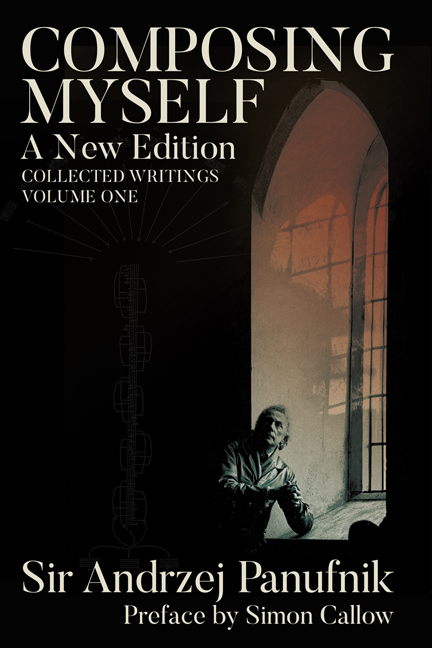4 - Composer in Uniform
Published online by Cambridge University Press: 09 January 2024
Summary
After the happy conclusion of my studies at the Conservatoire, my immediate intention was to further my education abroad. I passionately wanted to hear the great European orchestras, as well as to find out about the newest directions in composition at source.
Most young Polish composers gravitated towards Paris, because of the traditional cultural ties between Poland and France and the possibility of studying with the famous Nadia Boulanger.1 However, my goal was Vienna, partly because my German was more fluent than my French, but mainly because it was the city of the composers I admired most – Mozart and Haydn, Beethoven and Schubert – as well as the birthplace of exciting new developments in contemporary music: I had been fascinated by the score of Webern's Five Pieces for Orchestra, which I had recently been shown in Warsaw, but not yet heard. I was aching to experience at first hand the Vienna Philharmonic Orchestra and the Vienna Opera with their famous director, composer, pianist and writer Felix von Weingartner, perhaps the only living conductor to have worked with Liszt, Wagner and Brahms. I had long admired his inspiring recordings of the classical repertoire. Discovering that he taught a handful of pupils each year at the Vienna Academy, I had no doubt in my mind that this was where I must go.
As I had no money, I applied for a grant from the state-run Foundation of National Culture. Knowing that my future depended on it, I was very nervous when I arrived for my interview. But the Director of the Foundation was friendly and unfrightening, with a noble, intelligent face and the long greying moustache of a Polish country gentleman. He asked a succession of penetrating questions, puzzled that I wanted to study conducting rather than composition.
I explained that, though it was still my long-term intention to become a composer, at this point in my life I felt that I could learn more about the orchestra and about music in general through initiation into the secrets of the art of conducting the great classics than I could from any specific teacher of composition. I expressed my gratitude for the help I had received from the Warsaw Conservatoire; but now I felt it would be better for me to struggle alone to find my own musical voice.
- Type
- Chapter
- Information
- Composing Myselfand Other Texts, pp. 84 - 95Publisher: Boydell & BrewerPrint publication year: 2023

